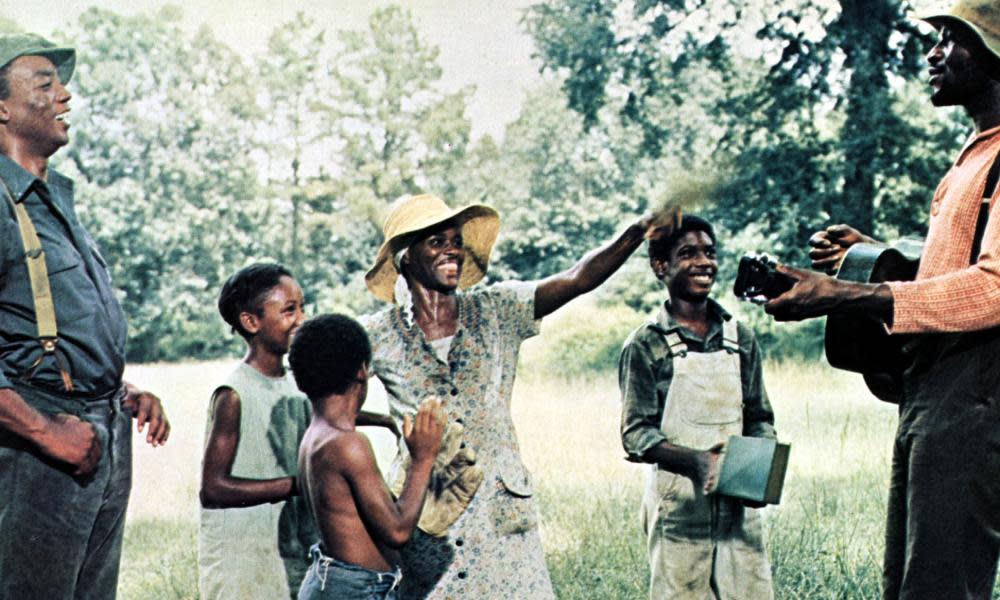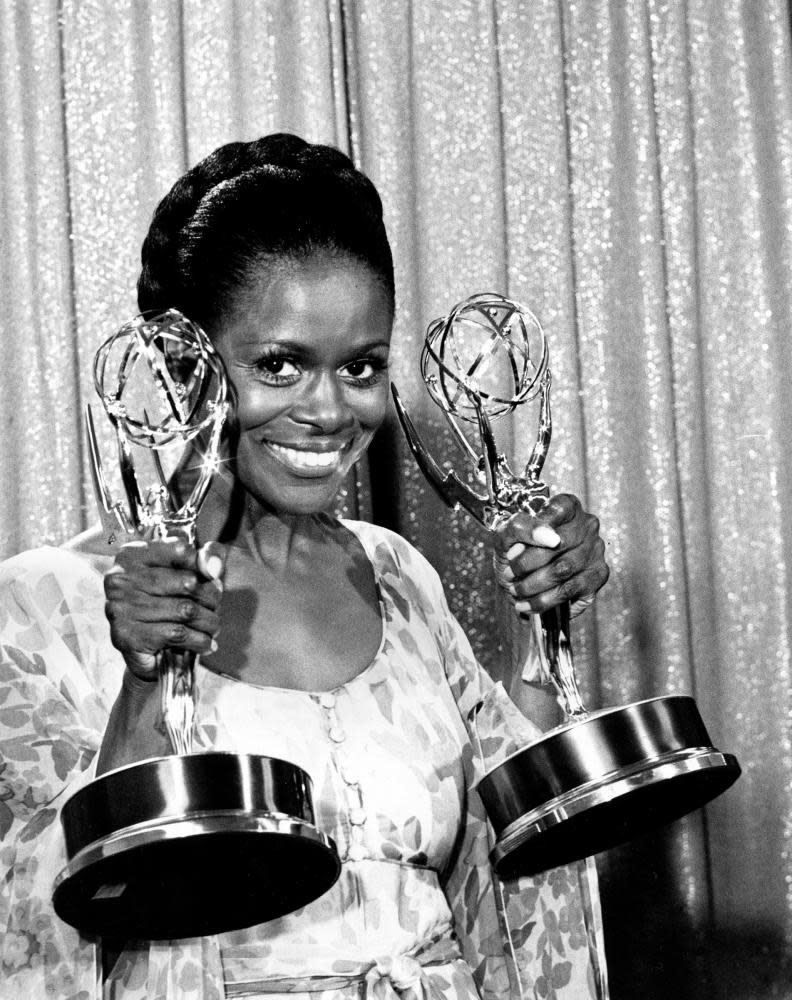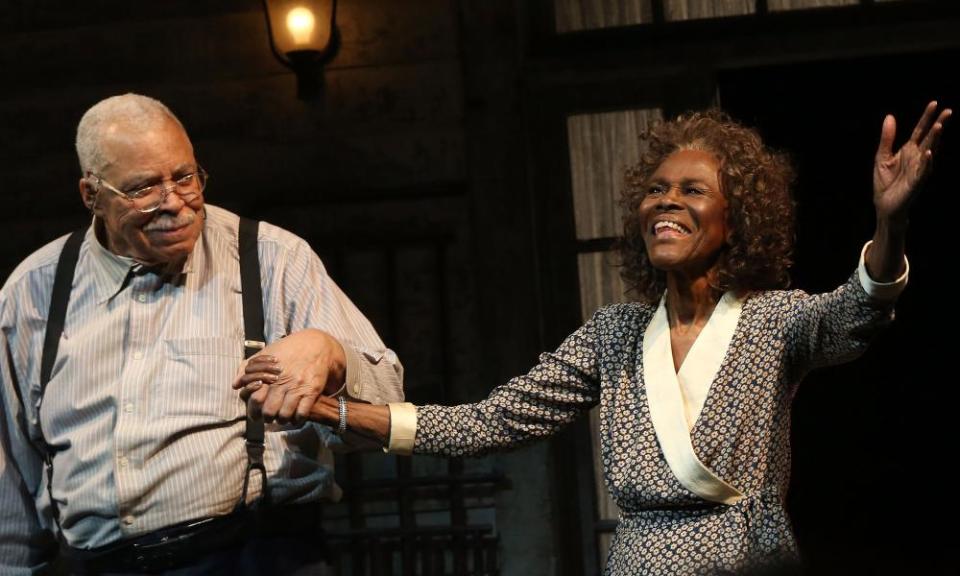Cicely Tyson obituary

The actor Cicely Tyson, who has died aged 96, resolved early in her career to bring a positive philosophy to the parts she played. “My art had to both mirror the times and propel them forward,” she wrote in her memoir Just As I Am, published only weeks before her death. “I was determined to do all I could to alter the narrative about Black people – to change the way Black women in particular were perceived, by reflecting our dignity.”
Nowhere was this more apparent than in the film Sounder (1972), for which she received an Oscar nomination. She played Rebecca, a woman in early 1930s Louisiana, who holds her sharecropping family together after her husband, Nathan (Paul Winfield), is sentenced to hard labour for a minor theft. What is remarkable is how little attention Tyson calls to herself. Rebecca gets none of the demonstrative, overwrought scenes commonly favoured by Oscar voters. Nor does she so much as raise her voice until the end of the movie, when she permits herself a shriek of joy as she spots Nathan hobbling up the dirt track toward their home at last.
Yet Tyson creates, almost by stealth, a cumulative portrait of a woman defined by her quiet perseverance and tenacity. It never wavers, even as she is treated unfairly – pilloried by the farmer who exploits her family, or rebuffed by a callous sheriff after walking miles to see her husband following his arrest.

Sounder itself is plain and prosaic, marked more by good intentions than cinematic sensibility. But it is elevated by its cast, especially Tyson and Winfield, whose charged scenes together, though brief, convey the depth of a decades-old marriage. The New York Times said Tyson “seems to understand that part of screen acting is keeping secrets from the camera”. Though she was beaten to the best actress prize by Liza Minnelli for Cabaret, she received an honorary Oscar in 2018.
She had been invited originally to audition for the smaller but more obviously inspirational role of the schoolteacher who takes Rebecca’s son under her wing, opening his eyes to important African-American role models such as the abolitionist Harriet Tubman. “I didn’t consider the schoolteacher a challenge, and Rebecca was,” she later said. “There were so many aspects of [her] that I found exciting enough to want to know if I could encompass this woman’s character. One was her strength, her courage, her love for her family, her knowledge that no matter how difficult things were, they were going to get better.”
She was told that she was “too pretty, too sexy” to play Rebecca. Months later, having found no superior candidate, the film-makers offered her the part. When asked by her agent why she wasn’t excited at the news, she replied: “Because I knew she was mine all along. I was just waiting for them to find out.”
Tyson’s career embraced black history, achievement and aspiration in stories factual and fictional. For the TV movie The Autobiography of Miss Jane Pittman (1974), she won two Emmys for playing a former slave whose life stretches from the civil war to the civil rights movement. In the popular TV adaptation of Alex Haley’s novel Roots (1977), she played Binta, the mother of the protagonist, Kunta Kinte; the poet Maya Angelou was her midwife.
In the miniseries King she was reunited with Winfield: he played Martin Luther King and she his wife, Coretta Scott King. In A Woman Called Moses (1978), she played Tubman, while in The Marva Collins Story (1981), also for TV, she was the Chicago teacher who founded an inner-city prep school for the children of black, low-income families.
Tyson was born in Harlem, New York, to William, a carpenter, and Theodosia, a cleaner. She attended Charles Evans Hughes high school, then found success as a model before enrolling at the Actors Studio. She established a reputation in the theatre, and got small parts in film and television but reached her widest audience at that point with a supporting role as a woman at loggerheads with her dying father in The Heart is a Lonely Hunter (1968).
Later films includedthe homely drama Fried Green Tomatoes at the Whistle Stop Cafe (1991), in which she played a cook who accidentally kills a racist brute; her colleagues barbecue him and serve the meat to investigators. She appeared in several movies by the actor-writer-director Tyler Perry, wildly popular in the US, among them Madea’s Family Reunion (2006) and Why Did I Get Married Too? (2010). In the Oscar-winning The Help (2011), she is a Mississippi maid who is unjustly fired.

For her performance in the 2013 Broadway production of The Trip to Bountiful she won a Tony, becoming at 88 the oldest person ever to do so. A television version was screened in 2014. At the age of 90, she starred on Broadway in The Gin Game, in which she and James Earl Jones played care home residents. The two actors had first starred together nearly 55 years earlier in the long-running 1961 Off-Broadway production of Jean Genet’s The Blacks. She was also a five-time Emmy nominee for the legal drama How to Get Away with Murder (2015-20).
Tyson had an on-off relationship with the musician Miles Davis, finally marrying him in 1981. They were divorced in 1989. An earlier marriage, to Kenneth Franklin, ended in divorce, and produced a daughter, whose name Tyson kept secret (calling her “Joan” in her memoir), and who survives her.
• Cicely Tyson, actor, born 19 December 1924; died 28 January 2021

 Yahoo Movies
Yahoo Movies 
